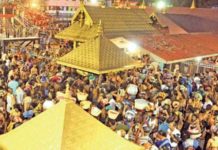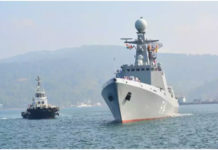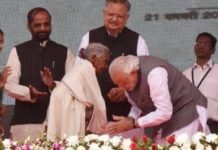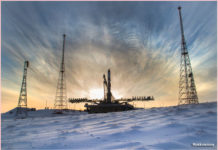![Arab-Spring-Revolution[1]](http://www.clatgyan.com/wp-content/uploads/2012/12/Arab-Spring-Revolution1.png) What happens when you are born in a country where you just assume that things will not change? In a country where the ruler continues to be the same, and the only thing that seems to change, seems to be the glaring inequality between “them” and “us”. But then, suddenly, the frustration builds up, and in an obscure town called Sidi Bouzid, a young fruit vendor burns himself up, this act has more symbolism than the “V/Peace” sign that hippies showed us during the Vietnam War. The self-immolation resulted in such protests that toppled not only one country’s dictatorial regime, but two countries’ (and counting). These protests inspired a new generation of frustrated youth to “take control” of their countries’ destinies. And the fearlessness and optimism spread all over the Arab nation – and soon, Algeria, Morocco, Yemen, Oman, Bahrain, Egypt, Libya and Jordan – were all witnessing protests, of some measure, all demanding reform and, major reform at that. They were tired of the same excuses, and they were tired of going unrepresented or misrepresented.
What happens when you are born in a country where you just assume that things will not change? In a country where the ruler continues to be the same, and the only thing that seems to change, seems to be the glaring inequality between “them” and “us”. But then, suddenly, the frustration builds up, and in an obscure town called Sidi Bouzid, a young fruit vendor burns himself up, this act has more symbolism than the “V/Peace” sign that hippies showed us during the Vietnam War. The self-immolation resulted in such protests that toppled not only one country’s dictatorial regime, but two countries’ (and counting). These protests inspired a new generation of frustrated youth to “take control” of their countries’ destinies. And the fearlessness and optimism spread all over the Arab nation – and soon, Algeria, Morocco, Yemen, Oman, Bahrain, Egypt, Libya and Jordan – were all witnessing protests, of some measure, all demanding reform and, major reform at that. They were tired of the same excuses, and they were tired of going unrepresented or misrepresented.
We could’ve documented the protests that occured in each country in some detail. But we believe that three countries that are most important as of now are: Tunisia, Egypt and Libya (which has a civil-war like situation). And so, CG has a compiled facts for all the three countries events. Remember, that, while Egypt and Tunisia had only protests, Libya has an armed rebellion as of now, however, the protests did start peacefully.
TUNISIA
• President : Zine al-Abidine Ben Ali
• Deposed after 23 years
• Corruption ranking : 59/178
• Unrest index : 49.4%
The trigger for the protests against Ben Ali’s rule was a desperate act by a young unemployed man on 17th December 2010. Mohamed Bouazizi set fire to himself when he was prevented by the authorities from selling vegetables on the streets of Sidi Bouzid without permission. Public anger intensified after he succumbed to his injuries on 4th January. Ben Ali was forced to flee the country following weeks of anti-government demonstrations and clashes between protesters and police. Mohammed Ghannouchi had served for many years under President Zine al-Abidine Ben Ali, who stepped down and fled on 14th January, so he was appointed interim Prime Minister. He also stepped down in the wake of thousands of casualties in anti-government protests on the 27th February.
Interim President Foued Mebazaa asked Beji Caid Essebsi, an 84-year-old former foreign minister, to be prime minister until elections could be held on 24 July.
On 8th March, Essebsi unveiled a new interim government of technocrats, none of whom served in previous governments under Ben Ali. Also he stated that this would last for four and a half months until the elections take place.
Essebsi had earlier reversed a two-decade ban on Tunisia’s main Islamist party, Ennahda, and set its prisoners free.
Tunisia has formally requested for Ben Ali’s extradition as he has been located in a Saudi Arabian hospital treated for a stroke.
EGYPT
• President : Hosni Mubarak (belonged to the National Democratic Party)
• Deposed after 30 years
• Corruption ranking : 98/178
• Unrest index : 67.6%
Major Players: The common Egyptian protester – leaderless, fearless and frustrated. Mohammed ElBaradei’s National Association for Change – a political alliance of like-minded secular political parties and individuals. The Muslim Brotherhood: Oldest political organization in Egypt, was banned throughout Egypt’s dictatorial history, derives its political ideology from Islam. Many westerners fear the rise of the Muslim brotherhood’s democratic victory through elections.
After weeks of protests in Cairo and other parts of Egypt, President resigned on 11th February 2011.
Unrest was driven by poverty, rising prices, social exclusion, anger over corruption and personal enrichment among the political elite, reduced tolerance for religious activity, suppression of political activism and growing inaction of anti-Christian bombing, as well as a demographic bulge of young people unable to find work.
The nationwide protests that erupted on 25th January saw almost 400 people killed, more than 6,000 injured, and thousands detained. They erupted after the success of the Tunisian revolution. Facebook and Twitter were used widely to publicise the public protests for that Friday being a “day of rage”.
Much of the unrest has subsided after the resignation since the protesters have staged weekly Friday demonstrations in Cairo’s Tahrir Square, to keep pressure on the military to deliver a swift transition to democracy.
This led to the resignation of Prime Minister Ahmed Shafiq on 3rd March, after he was seen as being part of the old guard, and spoke arrogantly of the protesters.
He was replaced by former Transport Minister, Essam Sharaf, a public figure who took part in the huge demonstrations that toppled Mubarak.
His new cabinet was sworn in three days later which will act as an interim administration while Egypt holds a referendum on constitutional amendments, a parliamentary vote in June, and a presidential election six weeks after that.
On 19th March thousands of Egyptians voted to back the changes to the country’s constitution, including reducing the presidential term and obliging the president to appoint a deputy or a vice president.
There is a travel ban on Mubarak who is currently residing in his villa in Sharm al-Sheikh. Proceedings against him are in their initial stages.
LIBYA
• President : Muammar Gaddafi
• In power since 1969
• Corruption ranking : 146/178
• Unrest index : 71%
The Libyan government prohibits any kind of protests but from the 16th February, thousands of people took to the streets in Libya’s second city, Benghazi, after a government critic was arrested.
The protests rapidly escalated and spread throughout the country, with the government’s use of force against the protesters increasing. Benghazi was the headquarters of the rebels. Rebels in the city established a 30-member Interim Transitional National Council which on 10th March, was recognised by France as the legitimate government of Libya.
Gaddafi’s forces then opened fire on the major cities.
Benghazi became the focus of the fighting and came under air attack by forces loyal to Gaddafi.
Fierce fighting has also taken place in the key town of Ajdabiya, near the Egyptian border.
Tripoli has remained in Gaddafi’s hands but has not escaped the violence. Central areas, including his stronghold of Sirte, remained under his control.
More than 200,000 foreign nationals streamed over the borders with Tunisia, Egypt and Niger to flee the violence, according to the United Nations.
The UN Security Council has already voted unanimously to impose sanctions on Gaddafi and his government, including an arms embargo and freeze on assets.
On the 17th March, in response to the increasing violence being used against civilians and the rising death toll, the Security Council passed Resolution 1973, authorising military intervention in Libya to protect the population and to “take all necessary measures” to enforce a no-fly zone over the country.
The International Criminal Court at the Hague has announced that it will try Gaddafi and his associates for crimes against humanity.
Canada, USA, UK and France – have all started their respective operations to ensure that a “no-fly zone” is implemented. They’re aiming to destroy air bases and the air capabilities of the Gadhafi regime so as to ensure that heavy weaponry isn’t used against the rebels.
UPDATE
Because of the fact that the scenario has changed so much since the time this was posted – especially in the context of “Tahrir 2.0″ and Syria’s civil war. Due to the fact that we are in the dag-end of our winter break, we couldn’t find anyone who was willing to add content to it. So, we’ve decided to add a few links – just skim through them and you’ll be fine.
For Syria’s uprising and the consequent civil war – go through the timeline here,
For Libya’s post-war, and pre-war situation – go through the links here, here and here,
For Egypt, Post-Mobarak, click here and here.
For more analysis and documentation, do visit: http://www.foreignpolicy.com/arab_revolution.
Sanya Samtani (inputs from Aymen Mohammed)
For CLATGyan.com















aaah! This is just superb! 🙂
thnx a lot … i must say dis artical is well writen nd throw more light on imp points nd events .. i was stun when i read dat Tunisia ‘s corruption ranking is better dan India …
i am not able 2 understand why India is opposing no-fly zone over Libya ….. as gaddafi’s regime should be severly punished 4 their brutual act against humanity …. neverthelles i’m able 2 grab imp points out of dis article 4 clat
India has a “principled opposition” to foreign intervention anywhere in the world. Which, I believe, is reasonable, we should always fear foreign intervention of any form – anywhere and everywhere. However, in Libya’s case, a no-fly zone was necessary.
First of all thanx Sanya & Aymen,
This kind of revolution will occur again & again and should occur if there is any Human Rights Violation by the dictatorial regime and to open their eyes for their useless extravagant lifestyle and to show them Democratic Rule is best for the people of any world.
u re right democratic rule is de bestest rule in de world ….. i think no-fly zone over Libya can toppled de gadaffi”s regime nd he should be prosecuted for its heinous acts …. i’m happy dat i’m living in democratic country
cheers 4 India !!!!!
ohh myy godd…!!!dizz izz lik wao n wao..:)thanku u so so much…:) 🙂
Was waiting for this article like anything… thnx a lot.. 🙂
thanks a lot 🙂
this is exactly what I needed :-)Thanks a ton !
wonderful article…super liked!!!
waahhhhh!!! wonderful artical……… thanx a lot…..!!!!
Does a low number on the corruption index mean you are low on corruption or high?
Means you are less corrupt.
Denmark is I think ranked one.
Guess whose last? 😛
it means you are high , as your rank becoming i.e. approaching to first your corruption level become higher and vice-versa.
I have two contradictory answers.
vishal is right low no means less corruption , i gave the answer on the basis of low rank.
SORRY for inconvenience.
Happy to help. 🙂
And to clarify, yes rank 1 is the least corrupt, and so on.
Short and Sweet
Thank you guys , you people continue to make life easier.
Tunisian President Moncef Marzouki arrived in Tripoli to hold talks with Libya’s transitional leader Mustafa Abdel Jalil.